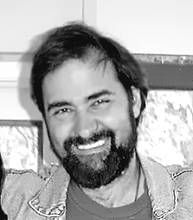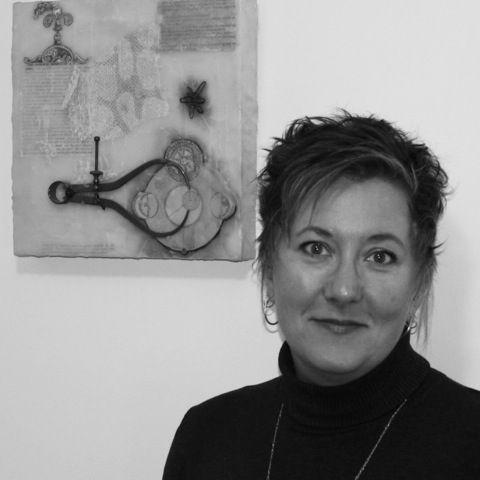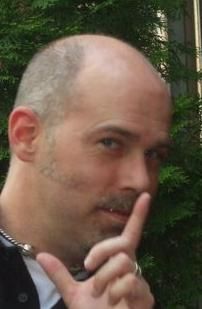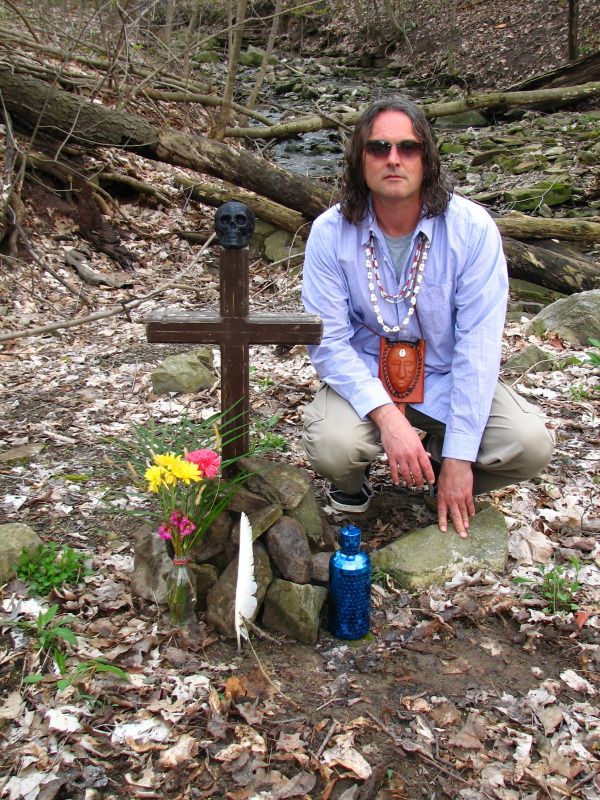Here are some instructions to help get you from the airport, bus depot or train station to our official accomodations and the conference site, as well as what to do when first arrive at the conference, plus some other handy information. (If you are registered for the conference, you should have received this information by e-mail as well.)
TABLE OF CONTENTS
==================
* Arriving in Toronto
* Arriving at Gaia Gathering
* Information about the residences
* Main opening ritual
* Volunteering
* Gaia Gathering programme
* Thursday night pre-Gaia Gathering welcoming party
* Friday tours and extras
* Saturday and Sunday evening entertainment
* Gaia Gathering AGM
* Toronto museums, shopping and events
* More Information
ARRIVING IN TORONTO
====================
A map and full directions to NewCollegecan be found here: http://www.ncsummer.utoronto.ca/Location.htm.
Should you need help upon arrival in Toronto please call or text 905 952 9757. We will do our best to help you from there. Air: Toronto has two airports servicing the city. Billy Bishop Toronto City Airport also known as “The Island Airport” and Toronto Pearson International Airport.
The Island Airport:
Porter operates out of Billy Bishop Toronto City Airport. To
get from the island there are plenty of options which you can investigate here:
http://www.torontoport.com/Airport/Getting-To.aspx
You may take the ferry and connect to the Bathurst Streetcar
which will take you to Union Station, the complimentary shuttle to the Fairmont
Royal York Hotel or take a taxi from the airport to New College.
Should you wish to take the complimentary shuttle to the
Fairmont Royal York, you have a couple of options to get toNewCollege. You can
take a taxi directly from the Fairmont Royal York, or you can walk across the
street to Union Station and take the subway north on University to Spadina then
take the streetcar south toWilcox Street.
Toronto Pearson International
Airport:
There are several ways to get from Toronto Pearson
International Airport to New College.
Taxi: Available on the Arrivals level. Approximately
CAD$53.00 to New College.
Limosine: Available on the Arrivals level. Approximately
CAD$53.00 to New College.
Airport Express Bus Service to Fairmont Royal York Hotel:
Approximately CAD$23.95 one way, approximately CAD$53.00
return. The customer service locations are: Terminal 1 - AE Customer Service is
located on the Arrivals Level Curbside Post C; and Terminal 3 - AE Customer
Service is located on the Arrivals Level Curbside at Area # 25
Public Transit: The TTC has several buses that will take you
from Terminal 1 (Ground level) and Terminal 3 (Arrivals level) to the subway
system depending upon time of arrival. The fare is CDN$3.00 (at the time of
writing). GO Transit operates bus service from York Mills and Yorkdale subway
stations to Terminal 1 (Ground level). This service operates every 60 minutes,
from approximately 6:00 am to 1:00 am Monday to Saturday, and from approximately
9:00 am to 1:00 am on Sundays. The fare at the time of writing is CAD$4.70.
More information can be found here: http://www.gotransit.com/publicroot/en/default.aspx
Union Station
Via Rail arrives to Union Station from all over the country.
You will arrive near street level. To obtain a cab speak with the kind folks at
the information desk and they will direct you. To get to the subway, go
downstairs or use the elevator. The Via personnel will assist you should you
have any questions. Signs or Go Transit staff will direct you to the subway
station.
Go Transit train lines all converge here and Go bus lines
arrive acrossBay Streetto the east. All bus travelers can access Union Station
by walkway overBay Street. There is an elevator for those who do not wish to
carry their luggage up stairs. You will end up on platform 1, there is another
elevator to take you to the main waiting area for Go Transit. Customer service
staff will be happy to direct you to the taxi stand or the subway system.
Please note that there are discounts available under the
Groups tab on Go Transits webpage that can be found here: http://www.gotransit.com/public/en/fares/tickettypes.aspx
How to Get to New College from Union
Station:
Go to the streetcar platform. The ticket booth attendant will kindly tell you where that is located before you go through the turnstile.
Take the streetcar that is going Northbound to Spadina Station. This will be
the Spadina car. The fare is CDN$3.00 (at the time of writing). Get off at
the Willcocks Streetstop (first stop north of College Street). Total trip time
from Union Station is around 15 minutes. New College - Wilson Hall Residence is
on the north-east corner.
Bus Lines
The Toronto Coach Terminal is located on the northwest side
of Bay St.and Dundas St. West. Taxis are available for those arriving at the
terminal just outside on the southwest corner of Edward Street and Elizabeth
Street. To get to the Subway there is a tunnel route to the Dundas subway
station.
ARRIVING AT GAIA GATHERING
============================
The University of Toronto is made up of seven colleges. We
are grateful and thank New College for accommodating us this year.
New College is located at 40 Willcocks Street,
Toronto, ON, Canada, M5S 1C6. The Residence is across the
street. There is a quite well done interactive map of
University of Toronto St. George Campus where you can locate Wilson Hall, New
College Residence and how to get to TTC Stations.
Once you arrive at the conference site (New College), there should be someone to greet you, as well as signs directing you up the stairs to the registration area. The university information desk is also right inside the doors, so if you don't see anyone or the signs, just ask them for directions.
Once you arrive at the conference site (New College), there should be someone to greet you, as well as signs directing you up the stairs to the registration area. The university information desk is also right inside the doors, so if you don't see anyone or the signs, just ask them for directions.
Please go immediately to the registration desk and give them your name so we can give you a conference badge, printed programmed, some swag, and information for the AGM. It's a good idea to bring your ticket or confirmation e-mail with you in case of glitches (they do happen), but it's not neccessary.
At the registration desk, you'll also be signing a waiver form, and we will have sign-up sheets for various tasks that we need help with over the weekend. (Helping out is completely optional but we appreciate it.)
Your conference badge must be worn at all times to access the talks, panels, workshops, and evening events.
INFORMATION ABOUT THE RESIDENCES
============================
If you are staying at the university residences, you can
expect the following:
- central air-conditioning
- single or double rooms (with 2 single beds)
- bed, desk and dresser
- linen (bedsheet), blanket, towel, pillow, pillow case
- a 23-hour reception desk (Wilson Hall Residence)
- private security guard patrolling the residences after hours
- complimentary broadband "wired" internet access (you require an ethernet cable or you can purchase one at the front desk for $5)
- in-room phone (for complimentary local calls)
- coin-operated laundry facilities on each floor (washer and dryers)
- iron and ironing board
- common rooms with limited kitchen facilities such as a microwave, burners, sink and fridge
- flat screen plasma TV rooms with sofas and armchairs
- shared communal washrooms
- library with computer lab use (small fee)
- business services
- non-smoking residence
- front desk where one can purchase long distance phone cards, TTC to kens for the streetcar and subway, postage stamps, laundry detergent, easy access to the TTC (Toronto Transit Commission–subway/metro system) just outside the door
Meals will not be provided however, there are a great variety
of choice in the local area or just a transit ride away.
Be sure to bring an alarm clock and an extra
pillow should you wish one. Please pack all necessary medications and special
dietary requirements. Should you wish to cook your own food at New College
Residence, be sure to bring what you need to prepare what you will make as
the residence does not provide cooking equipment.
===================
Our main ritual to open the conference will be held Friday night at 8pm. The ritual will be led by Richard James and guests based on the Mosaic of Canada highlighting different parts of Canada.This will be followed by a meet and greet. You must have gone through registration desk process before coming into the ritual.
Come as you are or dress up, it's up to you.
VOLUNTEERING
==============
Over the course of the conference, we will need volunteers to help sit at the registration desk, supervise the hospitality room, time-keep the panels and workshops, do whisper translation and more.
If you wish to volunteer or would like more information, contact saritaphoenix(at)sympatico.ca
GAIA GATHERING PROGRAMME AND SCHEDULE
======================================
The final programme is now available to download as a pdf. This includes the schedule of what is happening when. You can access it here: http://www.gaiagathering.ca/images/pdf/finalprogram.pdf
THURSDAY NIGHT PRE-GAIA GATHERING WELCOME PARTY
=======================================
Arriving early? Meet some Toronto-area Pagans in an informal setting. Some locals have organized an early-bird reception party on Thursday night. How awesome is that? The party starts at 7:30 p.m at 40 Homewood Ave (buzzer 364) in the recreation room of the building. It is strictly B.Y.O.B. and celebrants must monitor their intoxication levels as those exhibiting inebriation must be escorted off the property immediately (condo rules). The party room is on level B1 which may be accessed via the el evator. The closest cross-street to 40 Homewood Ave, is Jarvis and Carlton (Carlton is the same street as College but changes name east of Yonge street).
FRIDAY TOURS AND EXTRAS
=========================
All attendees have been kindly offered free admission to the Textile Museum of Canada (55 Centre Avenue -- Dundas St. W & University Ave., St. Patrick subway) on Friday. You will be required to show your Gaia Gathering conference badge to gain entrance to the museum.
On Friday afternoon there will be two guided tours. The first will be of local book shops with Richard James. The second is a tour of the Kensington Market and area with Sarita Phoenix. Both tours leave the Wilson Hall lounge at 2:15pm. Please arrive early so the tours can leave on time.
SATURDAY AND SUNDAY EVENING ENTERTAINMENT
===================================
On Saturday evening, we will meet at the JangBang Bar a Korean fusion bar located at 430.5 College Street. Cutting Bracken will entertain us with celtic music. A night of friendship and fun!
On Sunday, join us in Wilson Hall lounge for a wonderful networking opportunity with nibbles and mocktails; as well as acoustic music and storytelling from Wytchwood Children, Greg Currie and JD “Hobbes” Hickey.
GAIA GATHERING AGM AND BRUNCH ON MONDAY
===============================
This year we have one board position to fill. It is for a 3-year term. We will be asking for nominations during the AGM.
We welcome bids for hosting Gaia Gathering in 2013 and 2014. As of today's date, we still don't have any firm offers. If you would like to host Gaia Gathering, or want to find out what's involved in hosting, please email info@gaiagathering.ca or talk to one of the board members. The host city has one seat on the board of directors. It is a two-year term.
Everyone is welcome to attend both the AGM, however only those who have paid the full conference registration rates are considered members with voting rights. A buffet-style lunch will be served.
TORONTO MUSEUMS, SHOPPING AND EVENTS
========================================
Arriving early or staying later to take in the city? here are some useful links:
Museums:
- The Royal OntarioMuseum http://www.rom.on.ca/
- The Bata Shoe Museum http://www.batashoemuseum.ca/
- The Art Gallery of Ontario http://www.ago.net/
- Casa Loma http://www.casaloma.org/
- Spadina House http://www.toronto.ca/culture/museums/spadina.htm
- Centreville Amusement Park http://www.centreisland.ca/
- Fort York http://www.toronto.ca/culture/museums/fort-york.htm
- Elginand Wintergarden Theatres http://www.heritagetrust.on.ca/ewg
- Heritage Toronto Walks http://www.heritagetoronto.org/
Events:
- Artisans at the Distillery Show www.artisansatthedistillery.com
Shopping:
- The Eaton Centre http://www.torontoeatoncentre.com/en/Pages/default.aspx
- Kensington Market http://www.kensington-market.ca/Default.asp?id=1&l=1
- Toronto’s Chinatown http://www.toronto-chinatown.info/
- Yorkville http://www.bloor-yorkville.com/
MORE INFORMATION
====================
For more information, please visit our website, blog or Facebook page. You can also follow us on Twitter. The Gaia Gathering 2012 hashtag is #GG2012.
If you have any questions about the conference, please do not hesitate to contact us at info@gaiagathering.ca
Looking forward to seeing you all in a couple of days!
The Gaia Gathering National Board of Directors and Local Host Committee.
For more information click here:
Gaia Gathering, the Canadian National Pagan Conference, Toronto 2012







